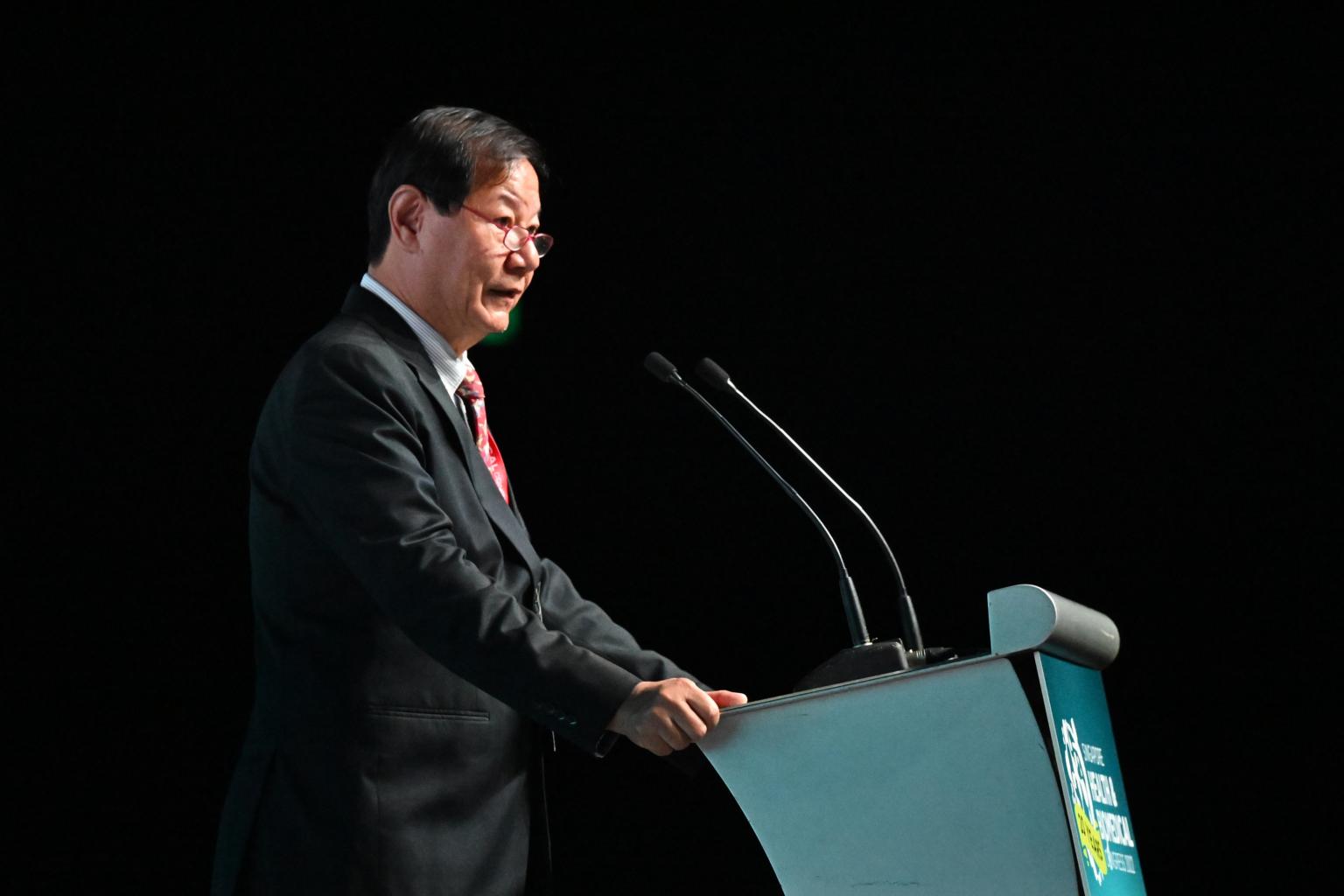Delivery of healthcare must change to maintain quality care as S'pore population ages: NHG chief
Sign up now: Get ST's newsletters delivered to your inbox

NHG chief Philip Choo spoke of the need for accountable care for the 1.5 million people under its care.
ST PHOTO: LIM YAOHUI
Follow topic:
SINGAPORE - The way healthcare is provided needs to change in order to maintain quality care as the population ages, said Professor Philip Choo, the group chief executive of the National Healthcare Group (NHG).
To do this, the group has identified several major shifts to better care for an ageing society, as older people tend to suffer from chronic ailments that will push up demand for services.
These include having a single care plan for each person that will serve him regardless of whether he is seeing a specialist, primary care doctor, or is in hospital.
In line with the proposed launch of the Healthier SG initiative in June 2023, the NHG has set up committees led by clinical leaders to establish programmes for preventive health and integrated care, with clear intended outcomes.
Giving the opening address at the NHG's 20th Singapore Health and Biomedical Congress, Prof Choo spoke of the need for accountable care for the 1.5 million people under its care.
This requires the group to work closely with various partners, including general practitioners, to promote health-seeking behaviours in this population.
The NHG is also reinventing the use of data to gauge what motivations and attitudes work best to change behaviour, so it can come up with targeted interventions for different segments of the population, he said.
The two-day congress, which was attended by about 1,350 people involved in various aspects of healthcare at the Singapore Expo, also looked at how technology can impact healthcare, and at changes to the workforce.
Mr Abel Ang, head of Advanced MedTech Holdings, said the use of technology in healthcare should serve a real purpose and not be used for its own sake. In fact, its use should be "invisible".
Dr Ng Yih Yng, the former chief medical officer at the Singapore Civil Defence Force who is now with the NHG, gave the example of a resuscitation device that is now used in ambulances.
As it can function continuously, it is able to free up two paramedics who would otherwise need to take turns keeping the patient alive on the way to hospital.
Dr Tan Jit Seng, founder of Lotus Eldercare, said telemonitoring and telemedicine for homebound patients can be very useful. Their vital signs can be synced to a computer, and they can do simple consultations over the phone. Medicine can then be sent to them.
Dr Rasu Shrestha, executive vice-president of Atrium Health in the United States, who spoke from there, said the pandemic saw the emergence of "hospital at home" where Covid-19 patients can be monitored remotely.
He said this can be replicated for other conditions, and it is 20-24 per cent less costly and frees up hospital beds.
Another session looked at whether gig workers could work in healthcare, which is perennially in need of staff. Panellists said they already exist, as that is what locum doctors are.
Associate Professor Lita Chew, group director for allied health at SingHealth, said her cluster uses its full-time employees as gig workers. It has a staff bank where those who are willing to give up their day off or part of their annual leave to take on additional duties are called on, with proper remuneration given.
Allowing permanent staff to turn gig is also a way to retain staff who might want or need to work shorter hours or fewer days for personal reasons. Keeping them on makes it easier for them to return to full-time employment in the future.

